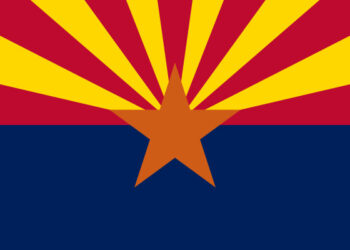CYBERSPACE — Five of the world’s largest Internet service providers have announced a join effort to develop a database of suspected child pornography images and other tools designed to help network operators and law enforcement agencies to prevent distribution of child porn images and assist with investigations into child pornography rings.According to Associated Press reports, the companies will pledge $1 million to form a technology coalition to function as part of the National Center for Missing & Exploited Children (NCMEC). The companies in the coalition are America Online, Earthlink, Microsoft, and United Online Inc., the parent company to ISPs NetZero and Juno.
“We believe it is possible to increase the chance that child predators will be caught and provide a deterrent to those who would be tempted to exploit children on the Internet,” said John Ryan, chief counsel at AOL.
Ryan said the coalition was partly a response to U.S. Attorney General Alberto R. Gonzales’ speech in April, in which he asserted an increase in child-porn cases and called out the Internet industry for not doing more to help combat the problem.
Ernie Allen, chief executive of NCMEC, pointed out that the ISPs already offer technologies to assist their users in addressing threats such as viruses and email ‘phishing’ scams and that it makes sense for the companies to include child porn in their threat protection.
“There’s nothing more insidious and inappropriate” than child pornography, said Allen.
According to the AP reports, the companies in the coalition have not decided upon a standardized method for detecting and classifying child porn images and plan to meet in July to work out the details. The basic plan is for NCMEC to collect known child porn images in a database and create a “unique mathematical signature” for each image, possibly a hash function like MD5.
Executives for the companies say that each firm will set its own policies and procedures for how to use the database, with the important factor being the opportunity to exchange ideas and eventually develop a set of tools to prevent the distribution of child porn rather than merely catching violations after the fact.
The announcement comes just as the U.S. House of Representatives readies for a two-day hearing on enacting new legislation to require ISPs to archive and retain a wide variety of historical usage data, data which could be used to track the activities of online users.
Representatives of EarthLink, Microsoft, Yahoo, Google, AOL, Verizon, and Comcast are scheduled to appear Tuesday, with officials from MySpace.com, Facebook.com and Xanga.com testifying on Wednesday.
While the proposed child porn database and related technologies wouldn’t cover the full scope of data that would be retained under the various “data retention” bills Congress is considering, some observers suggest that the creation of the coalition could be intended as a signal of the Internet industry’s willingness to cooperate with law enforcement efforts.












